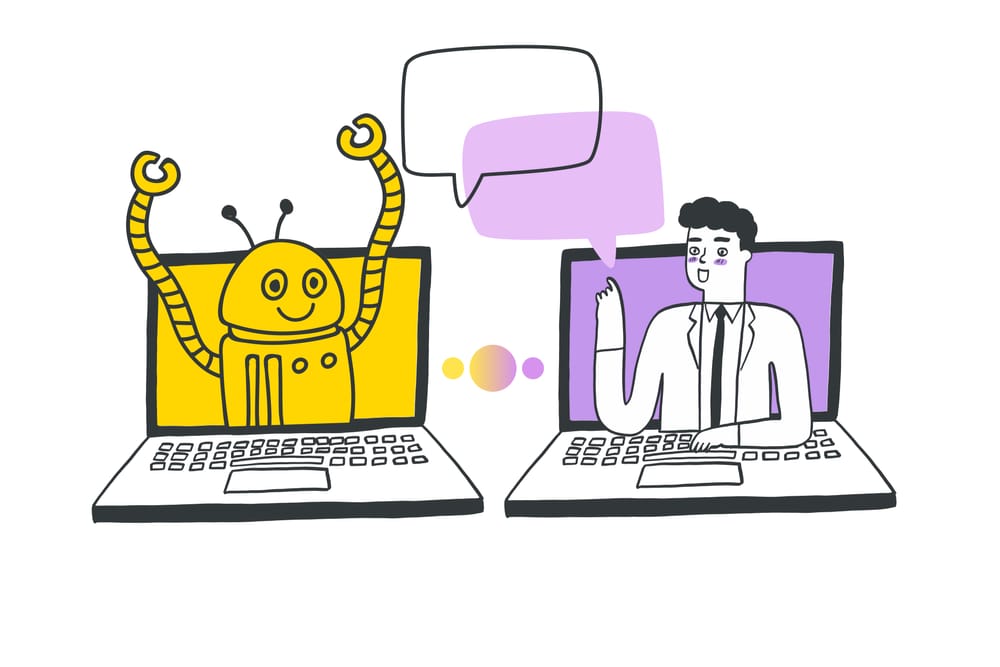With Goldman Sachs predicting a 7% increase in global GDP thanks to AI, and PwC estimating that AI could add as much as $15.7 trillion to the global economy by 2030, it’s clear why 70% of developers are becoming AI enthusiasts in their workplaces. But what about engineering managers? How could they benefit from AI?
Engineering managers often juggle project management, team coordination, and the challenge of keeping up with the latest technological advancements. That's a lot on their plate—luckily, AI can help clear some of that off.
Emerging as pivotal tools or “buddies,” AI assistants can significantly streamline processes and enhance efficiency. They do this by automating routine tasks, optimizing team collaboration, and providing insights in a way that gives back more time to engineering managers. Whether it’s predicting project delays based on current progress metrics or suggesting optimizations in workflows, AI can help engineering managers make informed decisions that would be difficult or time-consuming to make manually.
At the heart of AI’s functionality lies the ability to analyze both familiar and previously untapped data, providing engineering managers deeper understanding and new perspectives.
How Is AI Redefining the Role of Engineering Managers?
Fostering Innovation and Continuous Learning
As AI reshapes the tech landscape, an IBM report highlights a staggering need for 1.4 billion people to reskill. This transformative wave presents engineering managers with a unique opportunity to use AI technology to foster the growth and development of their software developers.
AI-powered learning platforms such as Zavvy and Cornerstone can help engineering managers to effectively design, curate, and oversee training programs tailored to the specific needs of software developers. These platforms can adapt content based on imminent project requirements or emerging technology trends, facilitating the continuous upskilling of teams.
Additionally, AI-powered learning platforms can analyze developer interactions, including course completions, search behaviors, and quiz performances, to curate and recommend the most pertinent and impactful learning resources.
This targeted approach not only aligns with the developers' current competencies and career objectives but also maximizes the relevance and effectiveness of their learning journey, empowering engineering managers to more effectively foster talent within their teams.
Read more: 15 Essential Skills Every Engineering Manager Should Have
Communication and Task Optimization
A report on Internal Communication and Employee Experience reveals a significant insight: 40% of over 2,000 survey participants predict that AI will profoundly influence internal communications within the next five years. This statistic also underscores a crucial point for engineering managers to consider, especially given how much time they dedicate to meetings and daily communication.
AI assistants can help engineering managers by automating routine tasks such as sending status updates, reminding team members of upcoming deadlines, and scheduling meetings. This not only saves valuable time but also allows engineering managers to focus on more strategic initiatives.
Here are several practical ways engineering managers can leverage AI to enhance communication and task optimization:
- Automated Updates and Notifications: AI can automate routine communications such as project updates, task deadlines, and progress reports, ensuring that the entire team stays informed without manual input from the manager.
- Real-Time Language Translation: For teams that are multilingual or distributed across different regions, AI-powered translation can facilitate seamless communication, breaking down language barriers and promoting inclusiveness.
- Meeting Summarization: AI tools can attend all-hands meetings (virtual or in-person) or daily stand-ups. They can record discussions and provide concise summaries, including action items and key decisions, which can be shared with the dev team for clarity and follow-up.
- Feedback Collection: Integrations with platforms like Slack or Microsoft Teams enable automated updates and quick feedback collection, enhancing communication efficiency.
- Intelligent Chatbots: Implementing AI chatbots, especially during the onboarding process, offers immediate support to new developers by providing instant answers to frequently asked questions about projects, company policies, and coding challenges.
- Enhanced Email Management: AI can help prioritize incoming communications, highlight urgent messages, and even suggest responses, helping engineering managers focus on critical issues first.
- Conflict Resolution: AI can analyze communication patterns to help manage crises or detect conflicts early. They can then suggest mediation strategies, helping managers maintain a harmonious team environment.
Enhancing Remote Team Productivity & Happiness
With remote work becoming the new norm in software development, managing distributed teams has become a challenge for engineering managers. AI assistants can help bridge the gap, from facilitating teamwork to task automation. Here are some other areas AI has stepped in to help engineering managers:
Wellbeing Monitoring: AI can meticulously assess team morale and individual wellbeing, providing early warnings to managers about potential burnout or disengagement.
Additionally, AI-driven sentiment analysis can interpret the emotional tone of team communications, determining whether responses to a topic are positive, negative, or neutral. These insights enable managers to sustain a healthy and productive remote work environment and make well-informed decisions that genuinely reflect the team's needs, perceptions, and feelings.
Enhanced Cybersecurity: Managing remote teams often involves dealing with multiple security risks associated with remote access to company resources. AI can enhance cybersecurity by continuously monitoring for threats and anomalies in behavior that could indicate a security breach, ensuring the integrity of remote work environments.
AI-Driven Onboarding and Training: For new developers joining projects, AI can streamline the onboarding process by providing personalized learning paths, automating paperwork, and ensuring compliance with organizational practices. This is particularly useful in remote settings where face-to-face interactions are limited.
Performance Monitoring: Leveraging AI-driven analytics tools such as GetDx or Datadog, managers can analyze work patterns more effectively. This analysis helps identify productivity trends and pinpoint team members who may require additional support or resources. For instance, HAY aids engineering managers and tech leads by revealing patterns in git commits (work output) and providing insights into team collaboration. This deeper understanding allows managers to tailor their support and optimize team performance.
Project Planning and Resource Allocation
Effective project planning and resource allocation are crucial for successful project delivery, and AI tools can significantly improve these aspects for engineering managers.
AI-powered Remote Monitoring and Management (RMM) systems like Atera utilize historical data and pattern analysis to forecast potential issues or recommend new initiatives and assist in setting realistic budgets and timelines.
AI platforms can predict project outcomes and continuously update crucial elements such as project scopes, workflows, and the assignment of roles and responsibilities. This dynamic approach to project management enables engineering managers to optimize their resources and guide their teams towards timely and within-budget project completions.
Enhancing Code Quality with AI
AI-powered code review tools can scrutinize code to assess its quality, identifying potential flaws and security risks, and recommending improvements.
The real advantage of AI in code review lies in its remarkable speed and scalability. It can rapidly analyze massive volumes of code, detecting patterns and irregularities that might escape human reviewers. This capability not only speeds up the process but also eliminates the fatigue and bias that can affect human judgment.
Furthermore, AI code review tools can facilitate knowledge sharing and foster a collaborative environment among engineering teams. Following the completion of code reviews, AI can aid in generating comprehensive documentation. This documentation serves as a valuable resource for developers, helping them trace the root causes of issues or inconsistencies in their work.
Despite these benefits, the output quality of AI-generated code can still vary, which may impact the overall productivity gains. Nonetheless, in combination with the human-in-the-loop element, AI code review tools can still very much help engineering managers and tech leads. The idea is not to replace developers but to supply decision support and empower developers to improve code reviews.
Conclusion
AI assistants are not just tools; they are becoming integral partners for engineering managers. By automating routine tasks, providing insights from data, and enhancing team coordination, AI is allowing engineering managers to focus on strategic goals and tackle the complex challenges of modern engineering environments.





